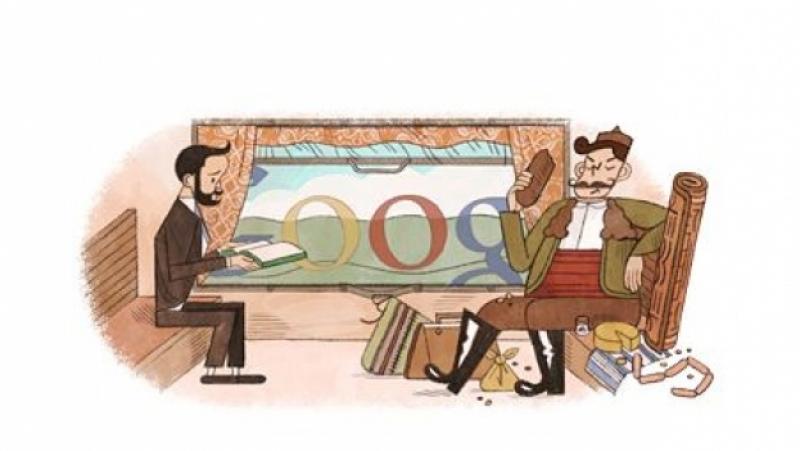/ world today news/ Google.bg released a special logo on the occasion of the 150th anniversary of the birth of Aleko Konstantinov.
It depicts a compartment of a moving train in which the writer and Bai Gagno – the most famous character of his works – are sitting. Aleko Konstantinov was born in Svishtov on January 13, 1863. in the family of a prominent local merchant, studied in Russia and worked after his return as a judge, prosecutor, lawyer and law teacher.
Aleko, known under the pseudonym Shastlivetsa, is not only a master of satirical feuilletons, but also a talented travel writer and founder of the tourist movement in Bulgaria (1895). Aleko Konstantinov died at only 34 years old.
#Google #celebrated #anniversary #Lucky #Man
In what ways does Google Bulgaria’s digital tribute to Aleko Konstantinov contribute to the preservation and appreciation of Bulgarian literary heritage in the digital age?
## Celebrating a Literary Legacy: An Interview
**Welcome to World Today News, where we explore the stories shaping our world. Today, we’re joined by two esteemed guests to discuss Google Bulgaria’s recent tribute to Aleko Konstantinov on the 150th anniversary of his birth.**
Our guests are:
* **Dr. Elena Petrova**, a leading scholar of Bulgarian literature and a specialist in Aleko Konstantinov’s works.
* **Mr. Ivan Petrov**, a prominent historian and expert on Bulgarian cultural heritage.
**I. The Man Behind the Masterpiece:**
**(To Dr. Petrova)** Dr. Petrova, Aleko Konstantinov, writing under the pseudonym “Shastlivetsa,” is widely recognized as a master of satirical wit. What are some of the key themes and stylistic elements that make his writing so enduringly popular?
**(To Mr. Petrov)** Mr. Petrov, Konstantinov’s life was tragically cut short at the age of 34. How did his multifaceted career, ranging from legal practice to travel writing, influence his literary voice and chosen subjects?
**II. A Visionary Traveler and Cultural Pioneer:**
**(To Mr. Petrov)** Aleko Konstantinov is credited with being a founding figure of the tourist movement in Bulgaria (1895). What was the broader social and cultural context that led to the rise of tourism in Bulgaria during this era, and how did Konstantinov contribute to its development?
**(To Dr. Petrova)** Konstantinov’s character “Bai Ganyo” is practically synonymous with Bulgarian literature. How does this character reflect the spirit of the times, and how has his portrayal resonated with readers throughout the years? Does his enduring popularity point to any timeless qualities in his work?
**III. Google’s Tribute: A Digital Legacy:**
**(To both guests)** Google Bulgaria’s decision to dedicate a special logo to Aleko Konstantinov highlights the impact of his legacy. What is the significance of this digital tribute, and how can such digital commemorations contribute to preserving and celebrating cultural icons in the modern age?
**(To both guests)** Looking ahead, what other avenues can be explored to ensure that Aleko Konstantinov’s work continues to captivate and inspire future generations? How can his legacy be further integrated into contemporary Bulgarian culture and society?
**We hope this interview has shed light on the life and works of Aleko Konstantinov, a writer who continues to resonate with readers and inspire generations.**
We thank Dr. Petrova and Mr. Petrov for their insightful contributions.


